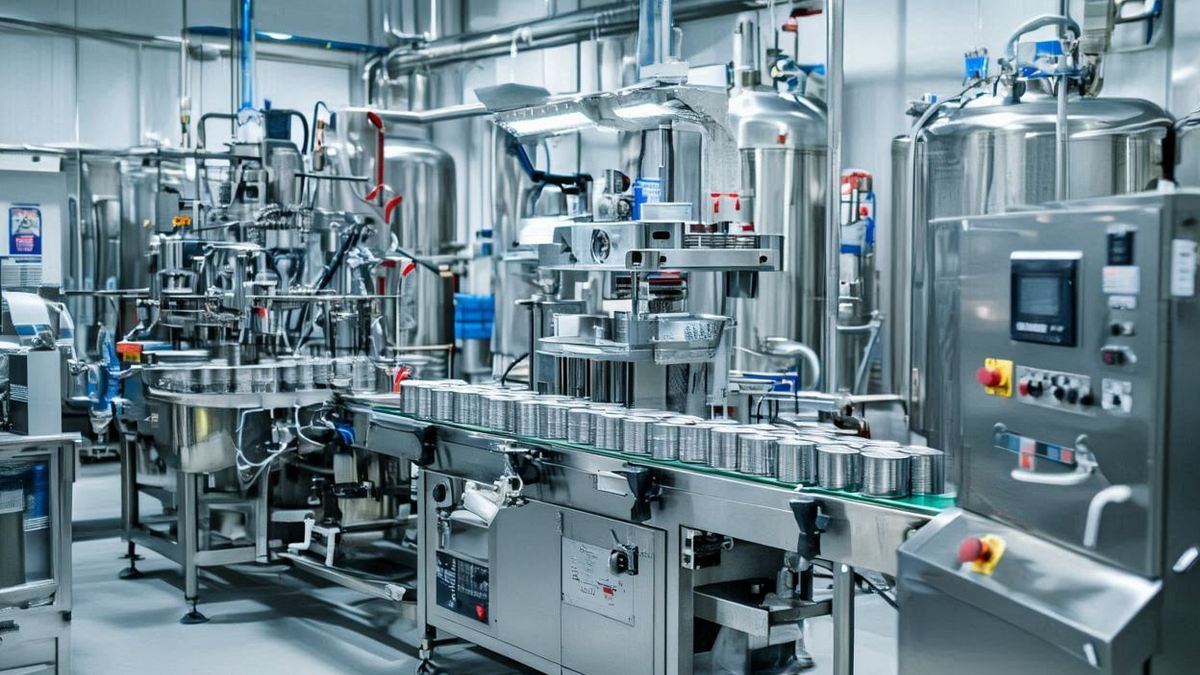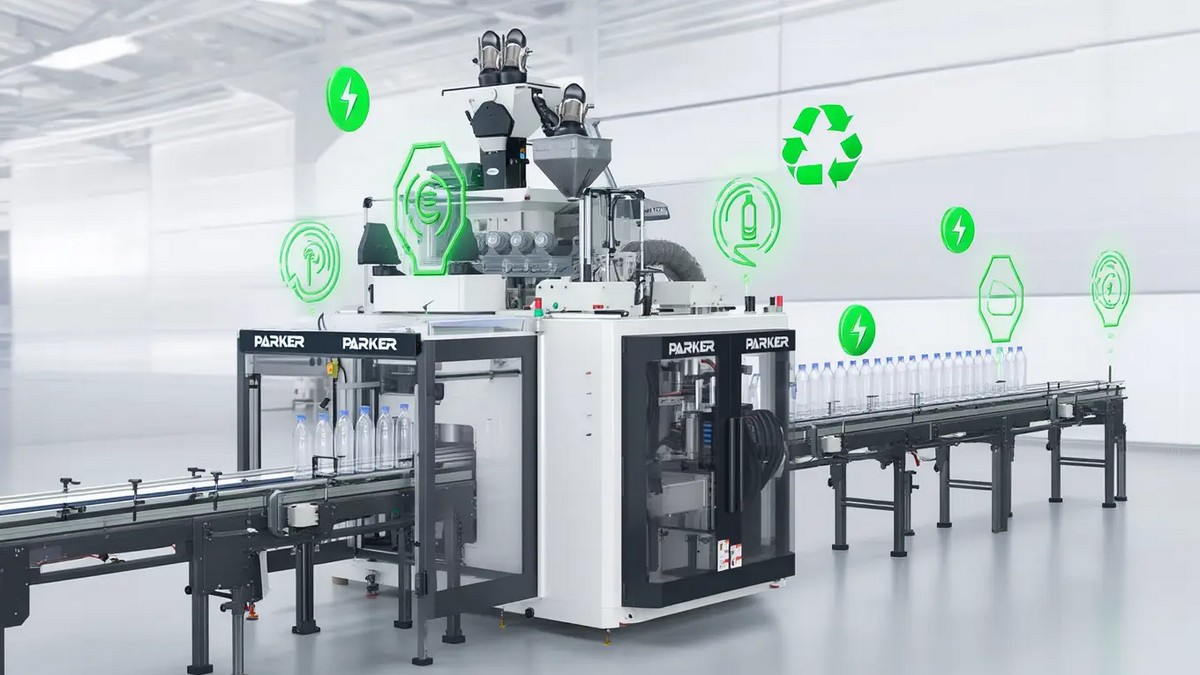Modern smart factories often face challenges with scattered data and information silos. Although sensors, SCADA, MES, and other systems continuously generate vast amounts of data, the lack of integration makes it difficult to quickly identify the root causes of anomalies. Large language models (LLMs) are emerging as a key solution by enabling cross-system data retrieval and analysis through natural language queries. Acting as “semantic coordinators” within multi-agent manufacturing systems, LLMs can dynamically adjust production schedules and resource allocation in real time. The article references examples from Microsoft Azure AI, AWS, Schaeffler, and Siemens to demonstrate how LLMs help reduce downtime, increase transparency, and improve decision-making efficiency. Finally, it highlights that as LLMs integrate with automation and visualization technologies, manufacturing will enter the “semantic era,” where operators can access production line insights conversationally and instantly, driving smart manufacturing toward greater flexibility and intelligence.
Data Scattered, Hard to Track: The Modern Factory’s Data Dilemma
Modern smart factories generate vast amounts of data, but that information is often scattered across different systems, making real insights hard to obtain. As the GE Vernova report points out, “Data is everywhere, but it’s hard to understand.” From production line sensors and SCADA monitoring systems to MES (Manufacturing Execution Systems) and quality databases, each is constantly producing massive volumes of data. However, without proper connections between these systems, operators often have to spend valuable time searching and cross-checking across multiple platforms just to pinpoint the real cause of a production anomaly. This fragmentation not only delays decision-making and causes inconsistent reports, but also makes it difficult to get a clear picture of overall resource usage—leading to critical production information being overlooked or addressed too late.
LLM: Your Smart and Reliable Assistant
Natural Language Conversations Speed Up Information Retrieval:
To access needed information faster, more and more manufacturers are turning to conversational AI tools. For example, Microsoft’s Azure AI “Factory Operations Agent” allows users to query production data simply by asking questions in natural language. Powered by large language models (LLMs) and OpenAI technology, the system can understand the intent behind a question and quickly retrieve relevant information from a semantic knowledge graph.
For instance, an operator could ask, “Which production step has a higher defect rate today?” and the system would integrate data from both operational technology (OT) systems and enterprise IT systems to deliver an analysis in no time—greatly reducing the time needed for problem diagnosis. AWS has also noted that generative AI opens new possibilities, enabling shop floor operators to pose complex questions in natural language, such as “Which SOP (Standard Operating Procedure) can resolve this production issue?” or “Based on the alerts, what are the possible causes of failure?” This kind of conversational querying makes critical information instantly accessible, shortening the path from problem to solution.
Advanced Collaborative Applications of LLMs in Smart Manufacturing
Multi-Agent Systems and Semantic Interaction Applications:
Beyond basic information retrieval, large language models (LLMs) can also be applied to more advanced production coordination. Recent studies have shown that LLMs can be integrated into multi-agent manufacturing systems, enabling different agents—such as decision-making agents and execution agents—to communicate with each other in natural language.
In these systems, the LLM acts as a “semantic coordinator”: it understands instructions from humans or other agents, interprets the context, and helps allocate tasks and schedule resources. In other words, production processes and scheduling are no longer bound to rigid, pre-set algorithms, but instead rely on semantic understanding to make real-time, dynamic decisions.
Research highlights that “LLMs can interpret and execute natural language instructions, facilitate complex decision-making processes, and respond rapidly to changing conditions.” This means that when facing small-batch, highly customized orders, smart factories can more flexibly adjust production plans and resource allocation—allowing operators to focus on strategic decisions without getting bogged down by tedious coding work.
Practical Applications
Reducing Downtime and Increasing Production Transparency:
LLM technology has already demonstrated powerful results in real-world applications. For example, at the Hannover Messe industrial fair, Schaeffler and Siemens showcased their “Industrial Copilot” smart assistant, which allows on-site personnel to generate complex machine control code simply through voice commands—significantly improving shop floor efficiency. Employees only need to describe their requirements verbally, and the AI system automatically produces the corresponding program, reducing manual coding errors and cutting down wait times.
Another case comes from smart manufacturing research, where an equipment fault diagnosis system combines operational data with an LLM to quickly pinpoint the root cause of a malfunction and instantly provide precise repair suggestions. This approach greatly boosts both repair efficiency and accuracy. These technologies substantially shorten troubleshooting time during downtime, make production processes more transparent, and enable engineers to identify issues and take action much faster.
Future Impact of LLMs
The LLM factory assistant acts like the “ChatGPT” of manufacturing, enabling operators to access complex factory data directly through natural language. As Microsoft states, unified data and AI are breaking down information silos, transforming scattered data chains into dynamic networks. Through AI agents, this becomes a bridge for employees to gain critical insights into equipment performance and costs, supporting better decision-making.
Looking ahead, with conversational interfaces, advanced data visualization, and automated operations combined, smart manufacturing will enter the “semantic era.” At that time, engineers and operators will interact as naturally as talking to a person—accessing production line status anytime with simple language—making manufacturing faster, more accurate, and ushering in a new chapter of intelligent industry.












.jpg)
.jpg)
.jpg)